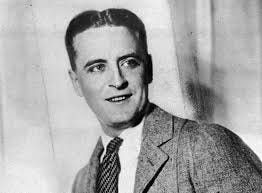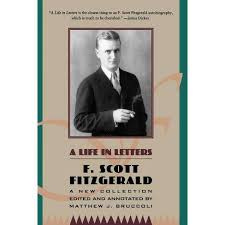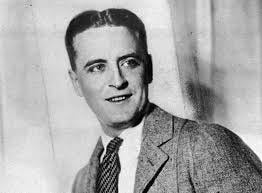#15 - F. Scott Fitzgerald on what really matters
“The dominant influences on F. Scott Fitzgerald,” wrote Matthew Bruccoli, the late professor and Fitzgerald scholar, “were aspiration, literature, Princeton, Zelda Sayre Fitzgerald, and alcohol.”
And—I would add—in that order.
Named Francis Scott Key Fitzgerald, after the author of the Star Spangled Banner (a distant relative), Fitzgerald was born in St. Paul, Minnesota in 1896.
Fitzgerald had those literary aspirations Professor Bruccoli spoke of at a young age. By 13, he had written his first short story. While an undergraduate at Princeton, Fitzgerald published essays and stories and humor pieces in The Princeton Tiger. Then, in 1919, not long after his discharge from the army, Fitzgerald published his first novel, This Side of Paradise, immediately making him a celebrity. He was 23 years old.
Fitzgerald married Zelda— #4 on Bruccoli’s list— just after his first book. Zelda, also a writer, and a partier, took easily to the young couple’s new celebrity. And her, along with F. Scott’s harrowing aspirations and a fast-paced, starlit life, came with Bruccoli’s 5th theme—the one that eventually took his life—alcohol.
Fitzgerald’s life burned too hot to sustain —he died of a heart attack at age 44—but, as happens with such energy, there were also bright spots.
The obvious one: his third novel, The Great Gatsby (1925). Soon after Gatsby, Fitzgerald spent in years in Paris and Spain with Ernest Hemingway, and other “Lost Generation” notables like Gertrude Stein, T.S. Elliot, and Ezra Pound, much of which Hemingway captures in A Moveable Feast, and inspiring Woody Allen’s Midnight in Paris nearly a century later.
But maybe the best things to come out of Fitzgerald’s life, were the various correspondences we have between him and others, many captured in Bruccoli’s F. Scott Fitzgerald: A Life In Letters.
My favorite—a letter of fatherly advice from Fitzgerald to his daughter, Scottie, then 12 years old, while she was at summer camp.
That’s today’s OGT.
Things To Worry About and Things To Ignore
When Fitzgerald was 25, he had his only child, Frances Scott (“Scottie”) Fitzgerald.
Whenever Scottie was away, Fitzgerald would try to write her, such as in this letter written more than a decade after Gatsby. Often the tone was silly, but always shedded the worldly wisdom the 37 year-old Fitzgerald had already acquired:
I am glad you are happy– but I never believe much in happiness. I never believe in misery either. Those are things you see on the stage or the screen or the printed page, they never really happen to you in life.
All I believe in in life is the rewards for virtue (according to your talents) and the punishments for not fulfilling your duties, which are doubly costly.
If there is such a volume in the camp library, will you ask Mrs. Tyson to let you look up a sonnet of Shakespeare’s in which the line occurs: “Lilies that fester smell far worse than weeds.”
The letter continues with the cute banter of a father teasing his daughter, then ends in sincerity, with Fitzgerald listing for young Scottie what really matters, and what does not.
Things to worry about:
Worry about courage
Worry about cleanliness
Worry about efficiency
Worry about horsemanshipThings not to worry about:
Don’t worry about popular opinion
Don’t worry about dolls
Don’t worry about the past
Don’t worry about the future
Don’t worry about growing up
Don’t worry about anybody getting ahead of you
Don’t worry about triumph
Don’t worry about failure unless it comes through your own fault
Don’t worry about mosquitoes
Don’t worry about flies
Don’t worry about insects in general
Don’t worry about parents
Don’t worry about boys
Don’t worry about disappointments
Don’t worry about pleasures
Don’t worry about satisfactionsThings to think about:
What am I really aiming at?
How good am I really in comparison to my contemporaries in regard to:
(a) Scholarship
(b) Do I really understand about people and am I able to get along with them?
(c) Am I trying to make my body a useful intrument or am I neglecting it?With dearest love,
The OGT
If there’s anything I’ve learned from reading about people like Martin and Maniscalco, Mark Cuban and Rafa Nadal, Oprah and Arnold, it’s that they, like Fitzgerald, consistently, relentlessly, prioritize and reprioritize the things that matter, and, more crucially, the things that don’t.
As Fitzgerald implies with his short, silly list of what matters, and much longer list of what does not, the key is what not to worry about. It’s those tantalizing but unimportant things that don’t matter, that take away from the small list that does.
It’s hard, to be sure—part science, part art. Or, as Mark Manson would have it, it’s the subtle art of not giving a f*ck.
I particularly like this run:
Don’t worry about the past
Don’t worry about the future
Don’t worry about growing up
Don’t worry about anybody getting ahead of you
Don’t worry about triumph
Don’t worry about failure unless it comes through your own fault
Just worry about the present, the process, and what you’re aiming at.
What am I spending too much time worrying about? Or not enough?
How about you?
Sebastian Maniscalco on long-term thinking
Mark Cuban on the one skill open to everyone that no one uses
Michelle Obama on how to change your career
Jeff Bezos on the difference between gifts and choices
Kevin Hart on how to bounce back after rejection
Arnold Schwarzenegger on how to find and copy a model
Tim Ferriss on the counterintuitive ease of thinking big
Rafa Nadal on how to beat someone more skilled than you
Oprah on the question to ask yourself before big decisions
Steve Martin on why persistence matters more than talent
Matthew Perry on helping others in your situation
Elizabeth Gilbert on passion versus curiosity
Phil Knight on what running taught him about business and life
Stan Lee on the secret to original thinking





